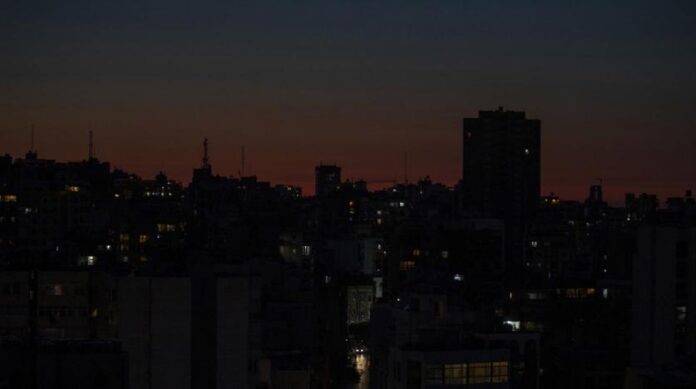The gas that will be pumped to Lebanon through the Arab pipeline, which stretches from Egypt, Jordan and Syria, is mostly Israeli. The electricity that will be sent to Lebanon through Syria and Jordan is also mostly Israeli, in line with an agreement that was drafted years ago by senior US diplomat Amos Hochstein.
Just days ago, Hochstein himself sponsored border negotiations between Lebanon and Israel. He informed Beirut that the Arab Gas Pipeline will be exempted from the Caesar Act sanctions imposed by Washington on Syria. The US official was also behind a Jordanian-Israeli deal in 2014 that sought to promote an “axis of moderation in the Middle East between moderate Arab countries and Israel.”
Beyond the technical and economic aspects of the new gas deal, several signs indicate that it is ultimately aimed at confronting Iran’s influence in Lebanon and Syria. The greatest evidence of this is that the deal was announced just days within Tehran’s announcement that it was sending oil derivatives to Lebanon through Syria. Beyond the region, Moscow and Washington are also seeing eye-to-eye on this issue despite their varying motives and goals.
A western official quoted a senior Russian official as saying that Israel was the one who encouraged Russia and the US to force the return of the Damascus regime to southern Syria and agree to delivering energy to Lebanon. Israel believes that such a move will help confront Iran’s influence in Lebanon and Syria, said the Russian official. Furthermore, CIA chief William Burns, who had toured the region in recent months, was also involved in the gas deal, which was also backed by National Security Council Coordinator for the Middle East and North Africa Brett McGurk.
Drafting the deal demanded extensive efforts and coordination: Establishing security in southern Syria where the gas and energy networks will pass through. Indeed, Russia led “settlements” in recent months that have seen the return of government forces along the border with Jordan. The opposition was forced out of the area, mines are being removed and Amman has since improved its relations with Damascus, with Jordan’s King Abdullah and Syrian President Bashar Assad holding a telephone conversation early in October. Moreover, the Amman-Damascus highway was reopened and discussions have been held over border security and providing incentives to Damascus.
Ministerial meetings between Lebanon, Egypt, Jordan and Syria have also been held to overcome obstacles in the operation of the gas pipeline and energy network. Also part of the deal is Washington’s pledge to Moscow that the World Bank will fund the project through assistance to Lebanon’s Electricite du Liban (EDL).
Notably, US Ambassador to Lebanon Dorothy Shea informed Lebanese President Michel Aoun that Washington had agreed to the proposal after holding telephone talks with the Egyptian and Israeli energy ministers. Those talks focused on “future plan to deliver Israeli gas for liquification in Egyptian plants before their export.” Israeli sources said the plan called for “delivering the Israeli gas through natural gas plants in Egypt ahead of their export to a third country.”
Egyptian and Israeli companies have struck several agreements over the years. In 2018, they agreed to the delivery of 64 billion cubic meters of Israeli gas from the Tamar and Leviathan Mediterranean fields to Egypt. The deal is valid for ten years and was worth 15 billion dollars. After Egypt declared self-sufficiency in gas production, it announced that the import of Israeli gas transforms it into a regional energy hub.
On the Jordanian front, Hochstein had kicked off negotiations over an electricity deal between Amman and Tel Aviv in 2012. Years later, Jordan’s National Electric Power Company reached an agreement with the American company representing the Leviathan field over the delivery of 45 cubic meters of gas for electricity production.
Washington’s interest in this project was piqued in order to provide political cover for the gas and electricity projects for Lebanon. American officials informed their Arab counterparts that the projects will be exempt from the Caesar Act that came into effect in mid-2020. Beirut, Cairo and Amman still demanded written guarantees and Hochstein informed the Lebanese officials of the exemptions.
In spite of the technical and political challenges, such as fixing the actual pipeline, removing mines and protecting the border, Washington has sought to remove legal obstacles and Moscow has sought to remove the military ones all for mainly political purposes, as opposed to economic ones.




